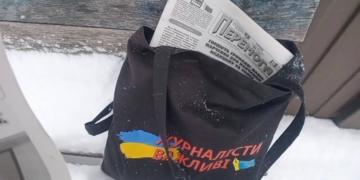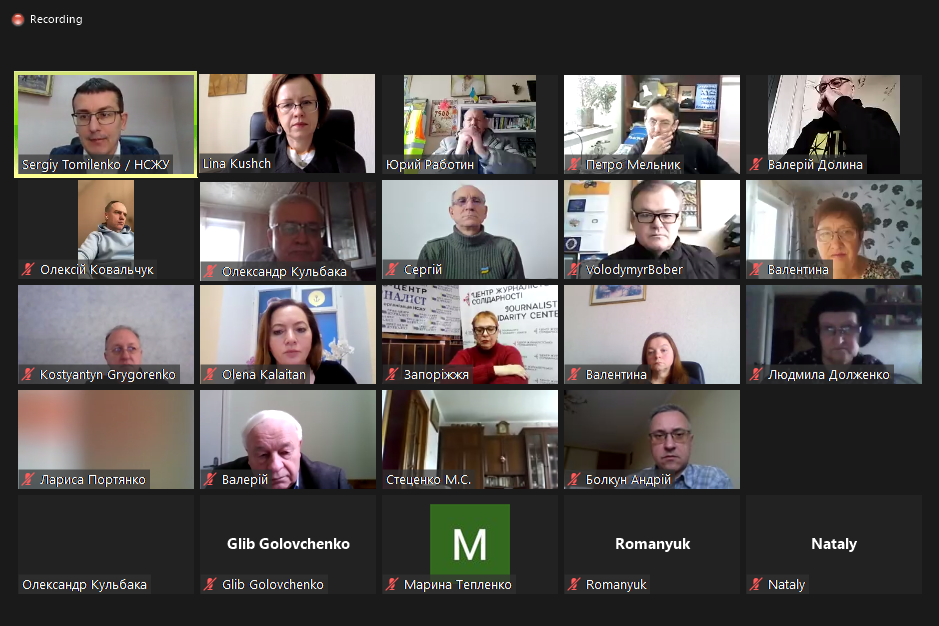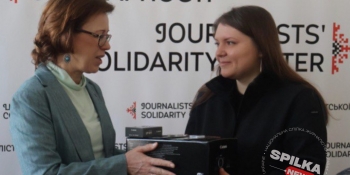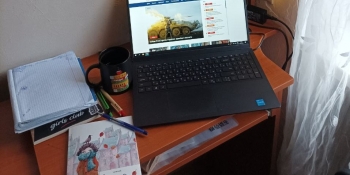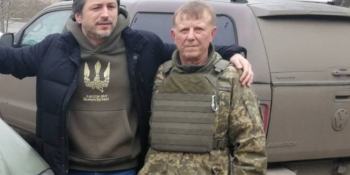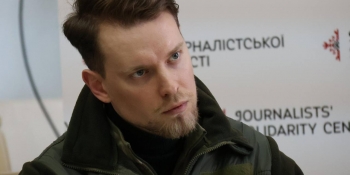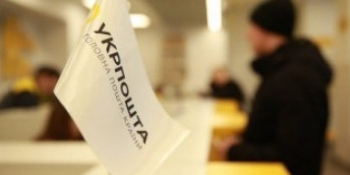“Over 2,000 journalists and more than 200 media outlets received financial and technical assistance with the help of the National Union of Journalists of Ukraine (NUJU) in 2022,” emphasized Sergiy Tomilenko, the President of the NUJU, during a plenary session of the NUJU Board on February 2.
The plenary session began with a moment of silence for the journalists killed in the terrible year 2022, fulfilling their professional and patriotic duty.
“Today, the profession of a journalist has acquired a new meaning and importance in Ukraine,” said Sergiy Tomilenko. “And the slogan Journalists are Important!, under which all our activities take place, is not only justified, but also acquires a powerful meaning. The first priority of the Union’s work was solidarity with colleagues who were in trouble “escaping from war-torn territories, being under occupation, working in dangerous conditions. We managed to attract funds provided by the International Federation of Journalists, UNESCO headquarters, many other benefactors from different countries to provide assistance to more than 2,000 journalists. The network of our Journalists’ Solidarity Centers, tangible financial and technical assistance has been provided to more than 200 newsrooms.
The NUJU President recalled that at the beginning of the war, the first Journalists’ Solidarity Centers were established in Lviv, Ivano-Frankivsk, and Chernivtsi. When they proved their effectiveness, the network later covered Zaporizhzhia, Dnipro, and Kyiv. Sergiy Tomilenko emphasized that the Centers work not only in the mentioned cities, colleagues from all over Ukraine who need technical, material, psychological, training support, need protective equipment or tactical first-aid kits for their work near the front line can contact the Centers as well.
“Supporting journalists and the media is not only a corporate goal. It is necessary in order for our colleagues to have the opportunity to put in extra effort to work on the information front,” emphasized the President of the NUJU.
This component of the Union’s activity is reflected in various projects. Only recently, the Swiss benefactor Fondation Hirondelle and the International Institute for Regional Media and Information (IRMI) opened a 10-month program to support 18 media outlets, 15 of which were directly recommended by the NUJU. A recent joint project with the Academy of the Ukrainian Press envisages attracting funds from benefactors to finance 10 media during the year, as well as providing 30 media with computer equipment, smartphones, etc.
Thanks to the efforts of the UNESCO headquarters, 160 Ukrainian journalists received a one-time scholarship of UAH 22,000. And thanks to Japanese philanthropists – the GREEN COOP organization and the Japanese Fund for Future Generations – the NUJU managed to launch a special program of financing the printing of one issue of newspapers in the de-occupied and front-line territories.
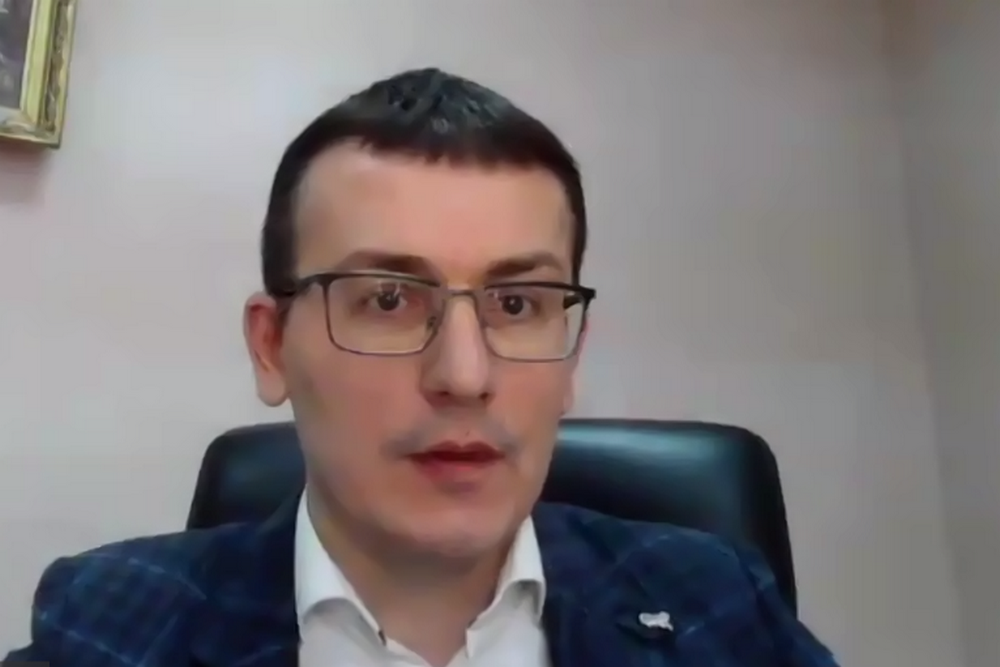
“We have financed the printing, as a rule, of the first issues after a long break, issues of 20 local newspapers, and we are very happy with the feedback that comes from the readers. People literally kiss newspapers, let them be read by their friends and people they know. They see their native language in them,” said Sergiy Tomilenko. “In the de-occupied territories, where the invaders destroyed everything Ukrainian, there is often no television or Internet. In these conditions, print media perform an important function of “feeling of Ukraine.” This also inspires newspaper editors who, realizing that they are not left alone with their problems, feel the strength to publish new issues of their publications.
Sergiy Tomilenko emphasized the importance of teamwork and helping colleagues in dangerous situations. Thus, the Lviv regional organization of the NUJU actively supported colleagues from Kherson, Dnipropetrovsk, Luhansk, Zaporizhzhia, Donetsk, Chernihiv, and Kharkiv.
The NUJU provides assistance not only to journalists who continue to remain in the profession, but also to those who went to defend the Motherland bearing weapons in their hands. Thus, assistance was provided to the correspondent of the Central Television and Radio Studio of the Ministry of Defense, Danylo Ishchenko, who lost a leg in the war; Dmytro Bohuslavskyi, the head of the Journalist Fund of the NUJU; and Viktor Ozhohin, a well-known TV journalist from Dnipro, who was seriously wounded.
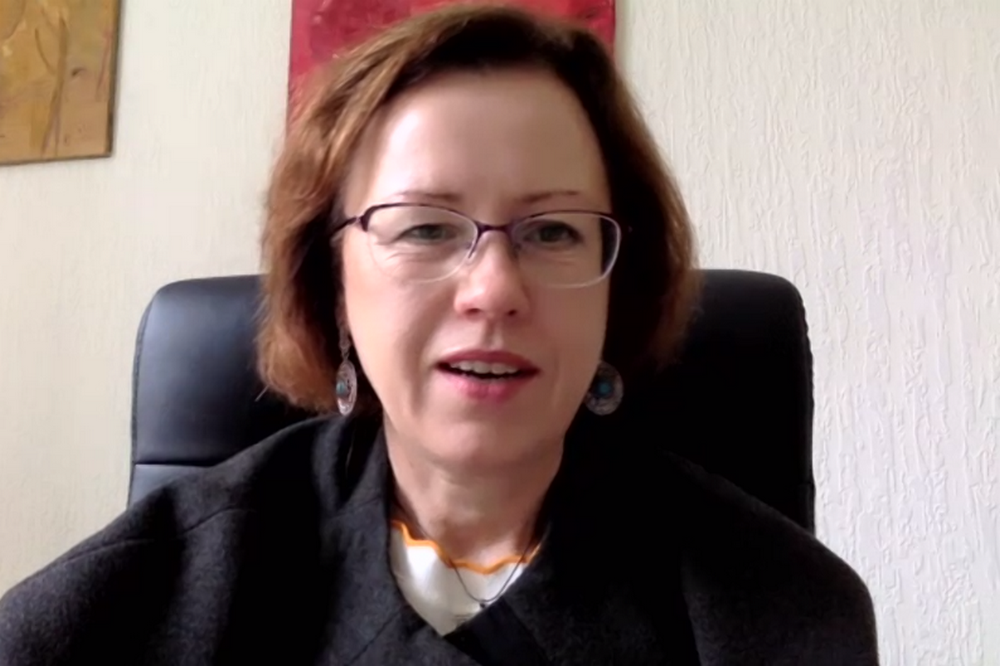
Lina Kushch, the First Secretary of the NUJU, spoke about such important areas of activity of the NUJU as helping colleagues who found themselves on the frontline or in the temporarily occupied territory with consultations and assistance in evacuation issues, and researching the consequences of Russian armed aggression.
“In May, we interviewed over 400 editors and journalists about how the events of the war affected them. It turned out that at that time 90% of the media lost income from advertising and agreements to cover the activities of authorities and local self-government, more than 20% of editorial offices lost access to their offices and equipment,” said Lina Kushch. “This was an important fact for attracting funds from international benefactors to help Ukrainian journalists.
The NUJU First Secretary drew the attention of the Board to the fact that, on the one hand, there is a huge local demand for verified information, and on the other hand, there is a sharp drop in the revenues of editorial offices. About a third of the media companies have stopped or suspended their output, and this process, unfortunately, continues.
The NUJU reported its conclusions about the threatening situation with the Ukrainian media to the government, parliament, and the National Security and Defense Council (NSDC). It was decided to hold committee hearings on this issue in the Verkhovna Rada. A workgroup, entitled to prepare such hearings and including representatives of the NUJU, has developed a number of proposals which concerned introduction of tax benefits for mass media, transparent rules for financing programs to inform the public, formation of a state reserve of newsprint, creation of a program of emergency government support for the media, etc. However, the hearing, unfortunately, has several times been postponed, and in the end, as of now, it has not been carried out.
Lina Kushch emphasized that NUJU feels the support of the International Federation of Journalists, which recognized the Ukrainian Union as one of the best in the world. Also, the First Secretary called on local organizations to pay more attention to covering own activities through information resources, and at the same time to focus attention not on the events held by the Union, but on the results of these events.
Also, Lina Kushch called on Union members to prepare for the restoration of the media in the territories that to be de-occupied by the Defense Forces of Ukraine. “We have to be ready to go straight to work,” she said.
In their speeches, the members of the Board and the Secretariat of the NUJU spoke about the specifics of the activities of the members in the regions of the country.
Therefore, Head of the NUJU’s Kirovohrad regional organization, Petro Melnyk, said that in the Kirovohrad Region, editors of several newspapers, reacting to NUJU activity, postponed the decision on the final shutdown of their publications. And several more newspapers, which are no longer published, may return to the information field of the region.
Head of the NUJU’s Donetsk regional organization Olena Kalaitan spoke about her own experience of moving to a safer part of Ukraine and the help of fellow citizens in organizing her life in a new place. She emphasized that an important direction of her work now is maintaining contacts with Donetsk journalists who have traveled to Ukraine and other countries; helping to restore their documents that remained in the occupied territory. Olena Kalaitan expressed hope that this year, she together with her colleagues will be able to return to their native Mariupol, but surely after the liberation of this city by the Armed Forces of Ukraine.
Head of the NUJU’s Zaporizhzhia regional organization Nataliya Kuzmenko and member of the NUJU audit commission from Zaporizhzhia Valentyn Manzhura talked about how they manage to combine work with Zaporizhzhia journalists with support of fellow immigrants to this city. It concerns help with food, equipment, training support, holding creative meetings, contests, etc. The Zaporizhzhia regional organization helps the front, including journalists who became soldiers during the war. Zaporizhzhia representatives also talked about clearing the ranks of the Union members from those former Ukrainian journalists who decided to cooperate with the enemy.
Head of the NUJU’s Kherson regional organization Valerii Dolyna thanked his fellow members for helping him leave the temporarily occupied Kherson and settle in a new place. He expressed his hope that as the region is liberated, printing of the local press is resumed in the cities.
Mykhailo Soroka, the head of the NUJU’s Kyiv regional organization, spoke about the experience of expansion of the Union’s members number in the Kyiv Region even during the war. He emphasized the need to resume the printing of local publications and called on local authorities and local self-government bodies to provide editorial assistance in this matter.
Secretary of the NUJU Kostiantyn Hryhorenko from Izium, Kharkiv Region, also thanked his colleagues for helping him to leave for the West of Ukraine, and to return after the liberation of his hometown.
“The presence of the Ukrainian word of the local press in the de-occupied population centers nearby the front line, is very important,” he said. “The presence of the newspaper on the shelves gives people peace and confidence in the future.”
He said that after returning to Izium, he learned with surprise and joy that when he gave radio interviews from Lviv about the situation in the Kharkiv Region, his compatriots heard him, and the words “we are near, we will return soon” gave them strength to survive in the conditions of occupation. He appealed to his colleagues, whose cities are still occupied, to find an opportunity to appeal to those compatriots who remained behind the front line.
Secretary of the NUJU Volodymyr Danyliuk, who is currently serving in the Armed Forces of Ukraine, called on his colleagues to make every effort to preserve the local press in the conditions of war.
“What will be the meaning of victory if we return to the burned out, dead information field of Ukraine?” he said.
Head of the NUJU audit commission / Secretary of the NUJU’s Kyiv organization Alla Maliyenko focused her attention on the need to cooperate with those members of the NUJU who have gone abroad, and with European (in particular, Polish) colleagues.
Head of the NUJU’s Rivne regional organization Dmytro Tarasiuk spoke about helping compatriots who protect the Ukrainian-Belarusian border (in particular, more than a hundred books were collected for them). He also criticized the Yedyni Novyny telethon, which, in his opinion, impoverishes TV programs, while taking a lot of money from the budget. The Union members generally critically assessed the government’s information policy, in particular, the adoption of the new law On Media with excessive powers of the national regulator.
Dmytro Tarasiuk noted that the Rivne Region has a relatively prosperous situation regarding the development of the local press, but three local newspapers have closed there, and the circulation of other newspapers is falling. To a large extent, in his opinion, this is facilitated by the poor performance of mobile post offices.
Head of the NUJU’s Odesa regional organization Yurii Rabotin spoke about the cooperation between Union members and students of Odesa universities, assistance to veteran journalists, volunteer activities (in particular, about 50 wheelchairs were given to hospitals, humanitarian aid was given to Mykolayiv, Kherson), presentations, creative meetings with involving immigrants, nationwide competition entitled Ukrainian Language is the Language of Unity.
Volodymyr Bober, the head of the NUJU’s Chernivtsi regional organization, spoke about the work of Union members with immigrants and the importance of keeping in the Union of those people who worked in newspapers that are no longer published. For this purpose, it was decided to create certain NUJU centers in Bukovyna according to the territorial principle. He also expressed hope that the circumstances of the war will not lead to the monopolization of the authority and a situation where the authorities cannot be criticized. “We should pay attention to this, because we can expect that there will not be a single independent newspaper,” said Volodymyr Bober.
Secretary of the NUJU Serhii Shevchenko focused on the need to restore Union’s awards for journalists who have achieved significant success on the information front.
Besides, Secretary of the NUJU Vitalii Holubev expressed his satisfaction with the fact that in the conditions of the war “the central office works in a productive way, and is not in hibernation” and called on every active member of the Union to more actively tell through their resources about the work of еру NUJU, to spread information about competitions.
Editor-in-Сhief of the Slavic newspaper Visti / journalist of the Karachun site Oleksandr Kulbaka called on the NUJU to pay more attention to the problems of online publications. “Sites are becoming the information frontier of journalism,” he emphasized.
The Board decided to recognize the work of the NUJU in 2022 as satisfactory and to approve the report of the management of the Union.
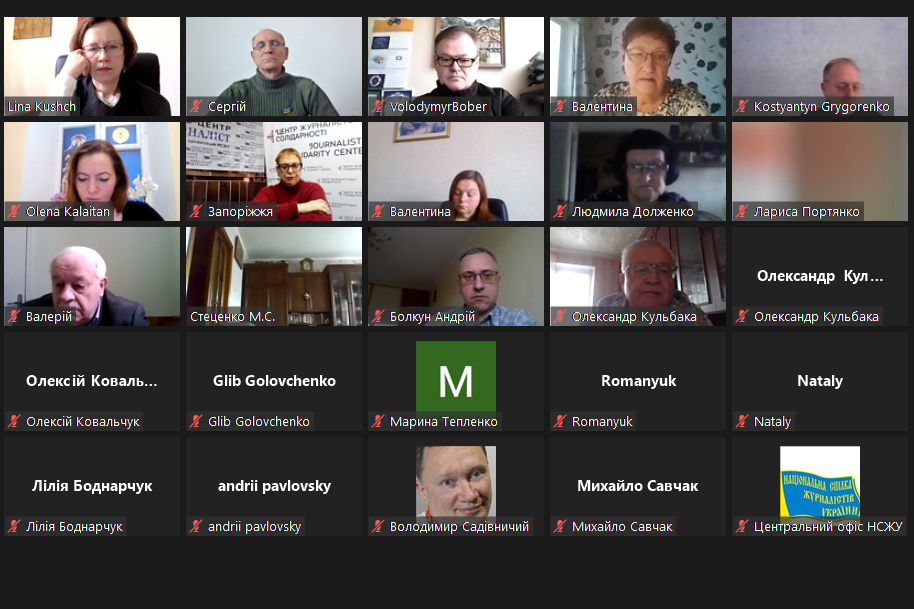
Among the priority areas in 2023, the following are identified:
- development of international partnership to help Ukrainian journalists and media,
- resistance to enemy propaganda, support of the international boycott of the Union of Journalists of Russia,
- commemoration of the fallen journalists, support for their families,
- development of the network of NUJU Journalists’ Solidarity Centers,
- assistance in the implementation of the new law On Media,
- support for local media in the de-occupied and frontline territories,
- improvement of the Union’s communication strategy.
NUJU information service





